A 1200-year-old tomb of a lord filled with gold was unearthed in Panama (photo)
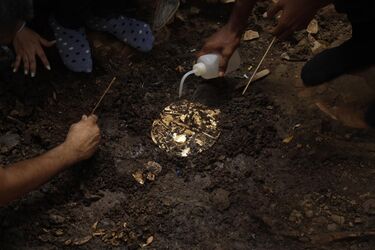
Archaeologists in Panama have discovered a 1200-year-old tomb that belonged to a pre-Hispanic royal family. The tomb, located in El Caño, an archaeological park in the province of Cocle, contains an impressive collection of gold artifacts, making it one of the richest burials ever found in this country.
It is believed that the tomb is home to an "important lord of Coqle" who lived in the late 700s. He died at the age of about 30. The tomb contains a large amount of funerary equipment that belonged to an unnamed royalty, including ceramic artifacts and gold items such as pectorals, belts, bracelets, earrings, and necklaces, according to the Panamanian Ministry of Culture.
Among the gold artifacts are five pectorals, two belts of round gold beads, four bracelets, two earrings depicting a man and a woman, an earring in the shape of a double crocodile, a beaded necklace, five earrings made of sperm whale teeth covered with gold, a set of round gold plates, two bells, a set of bone flutes, as well as bracelets and skirts made of dog teeth.
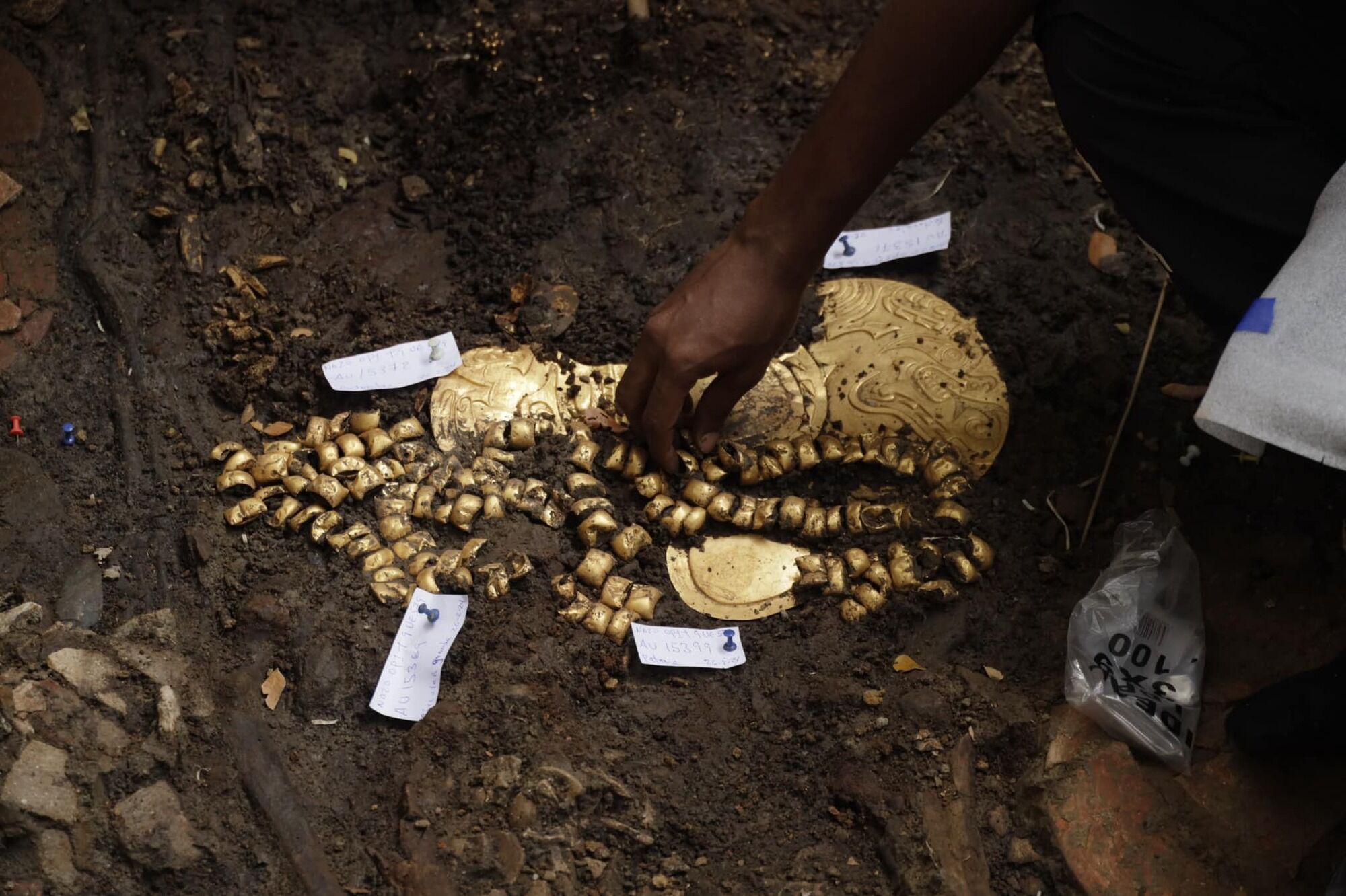
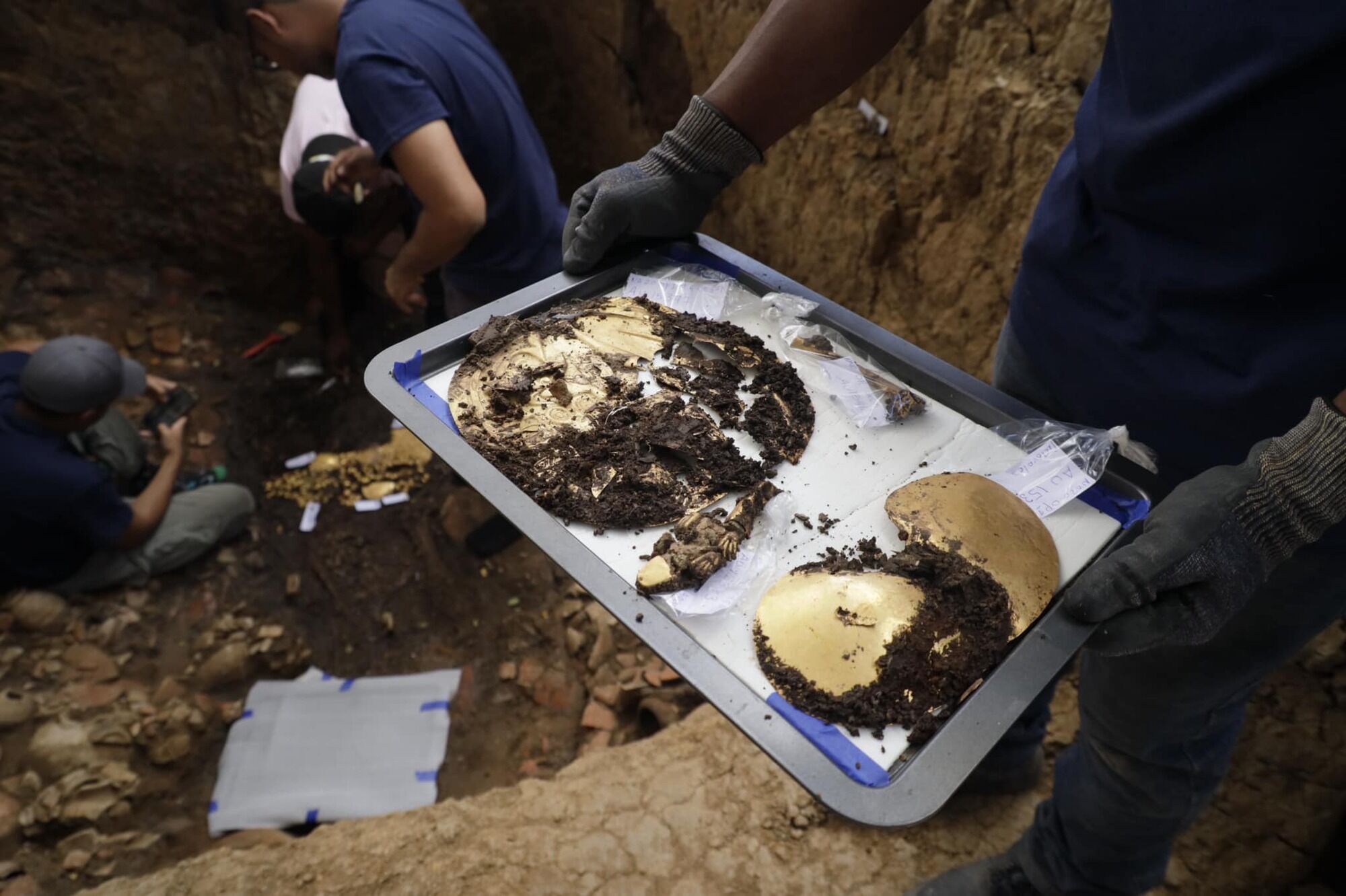
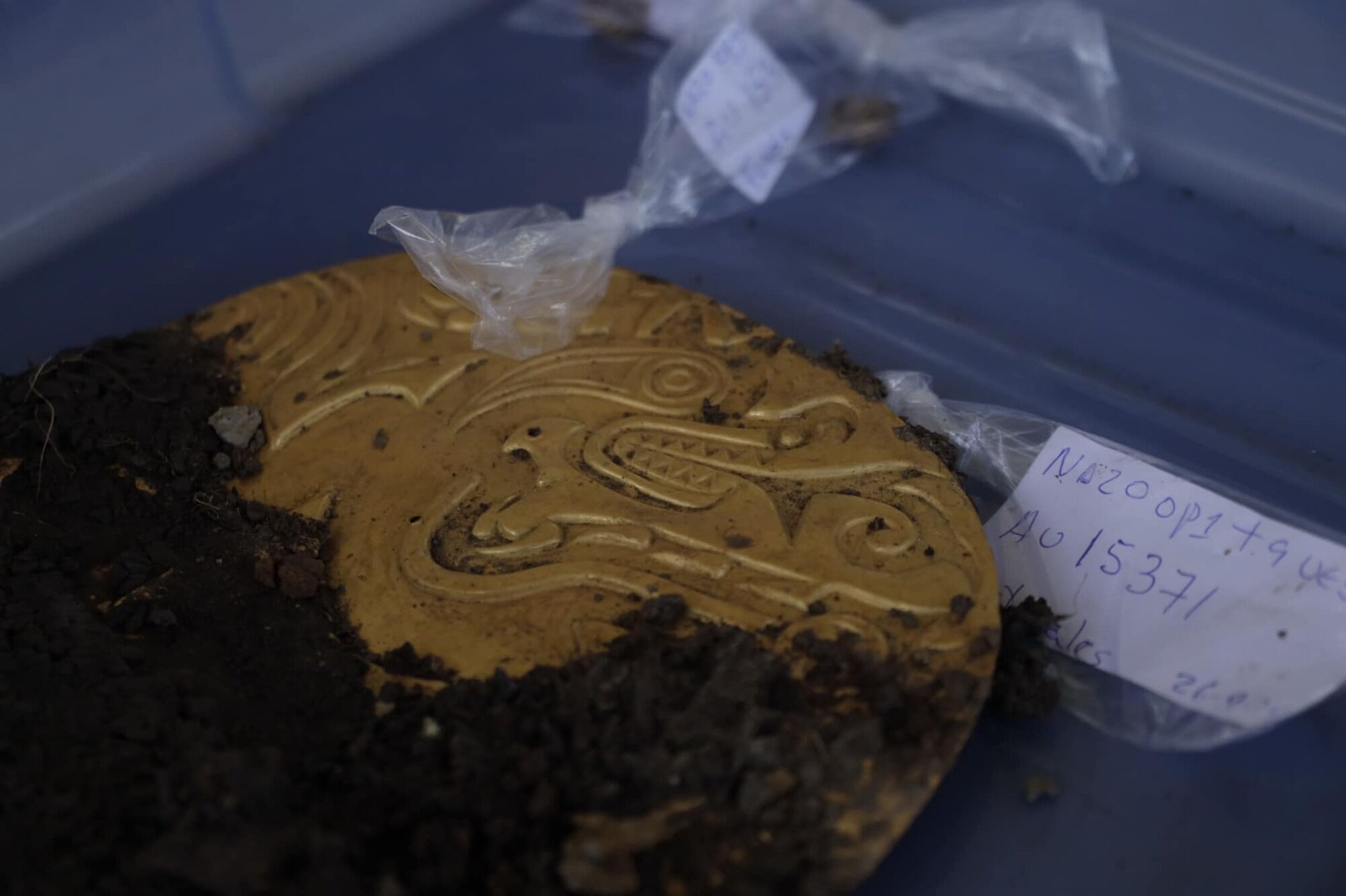
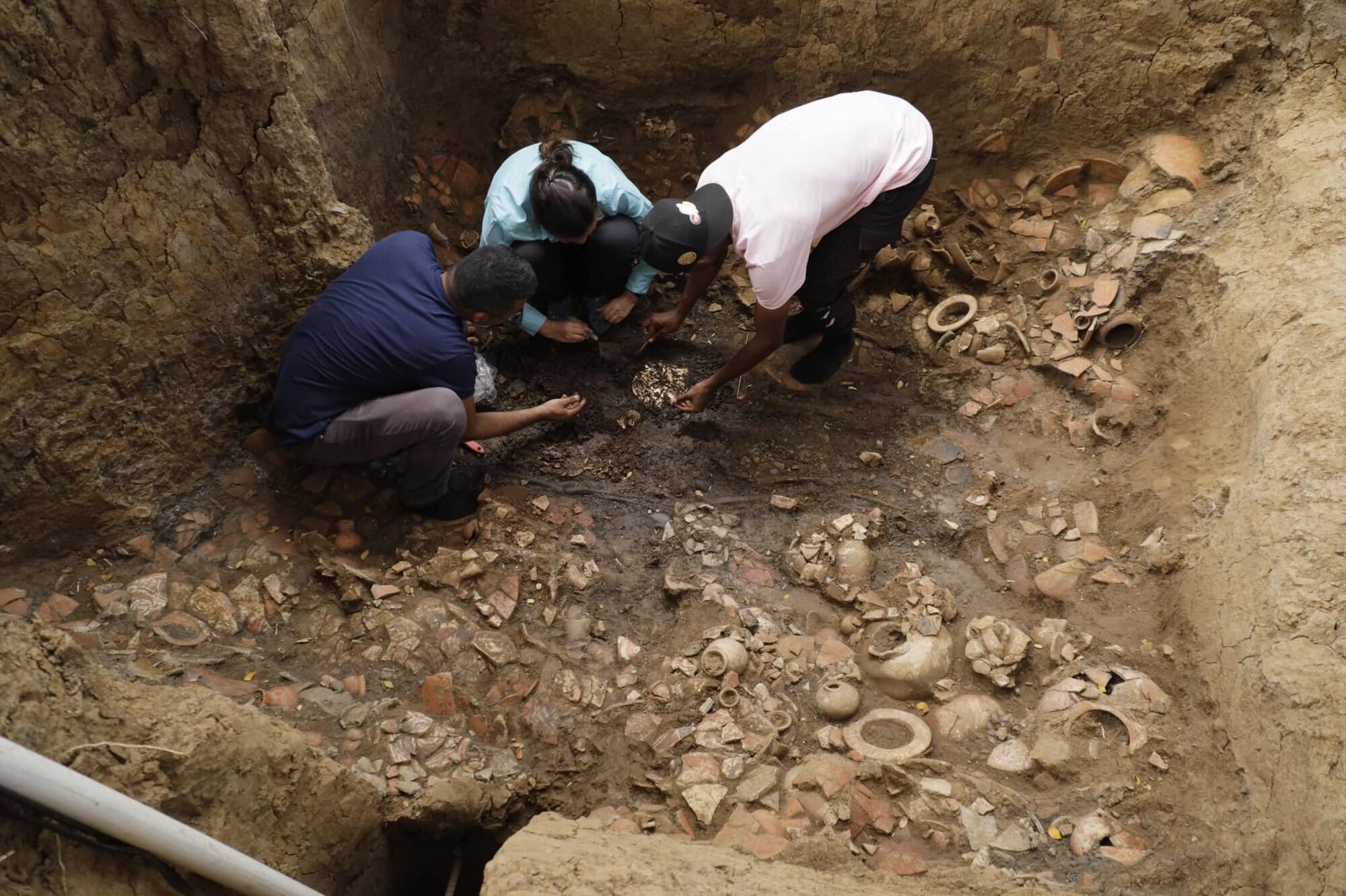
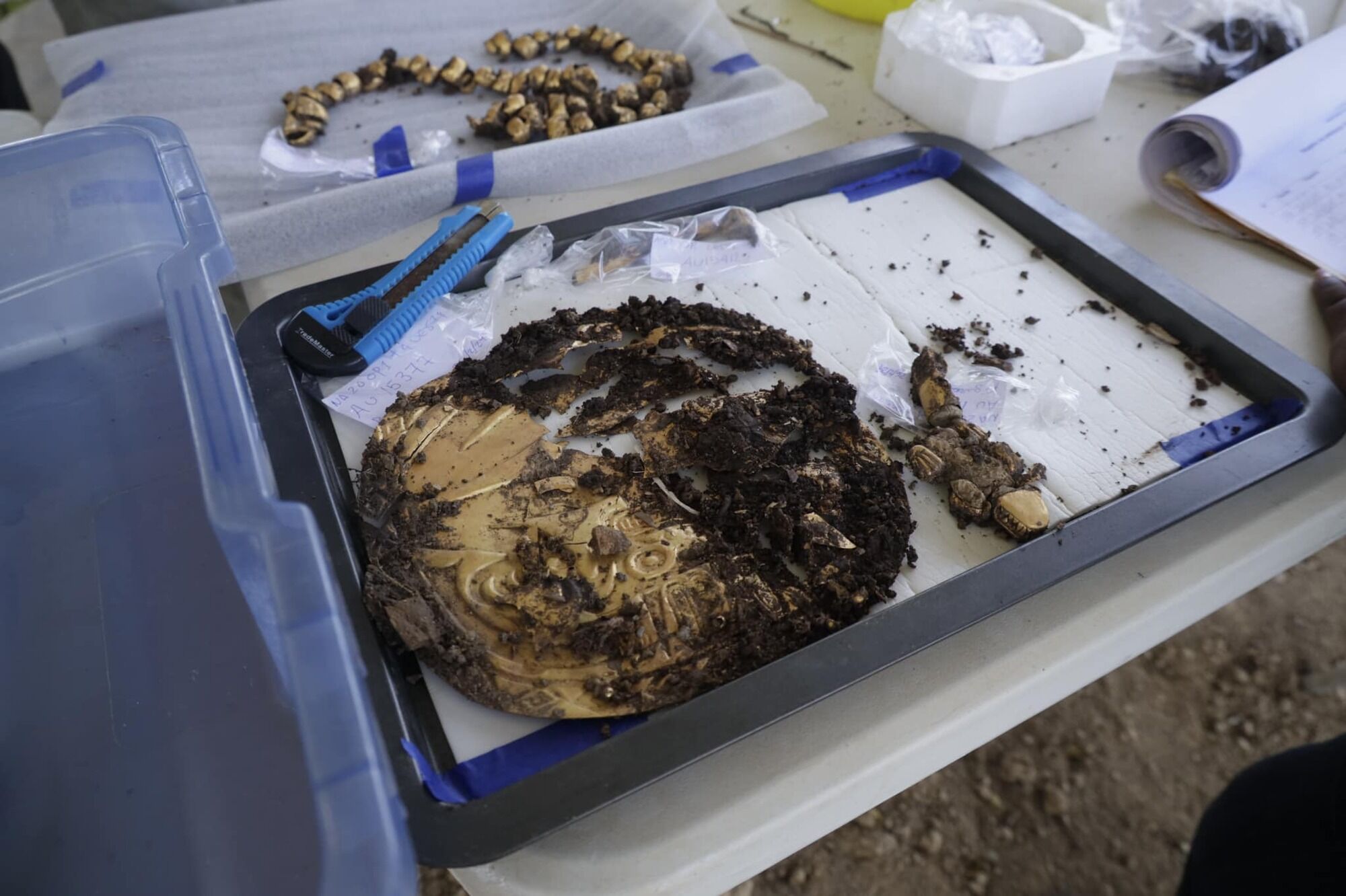
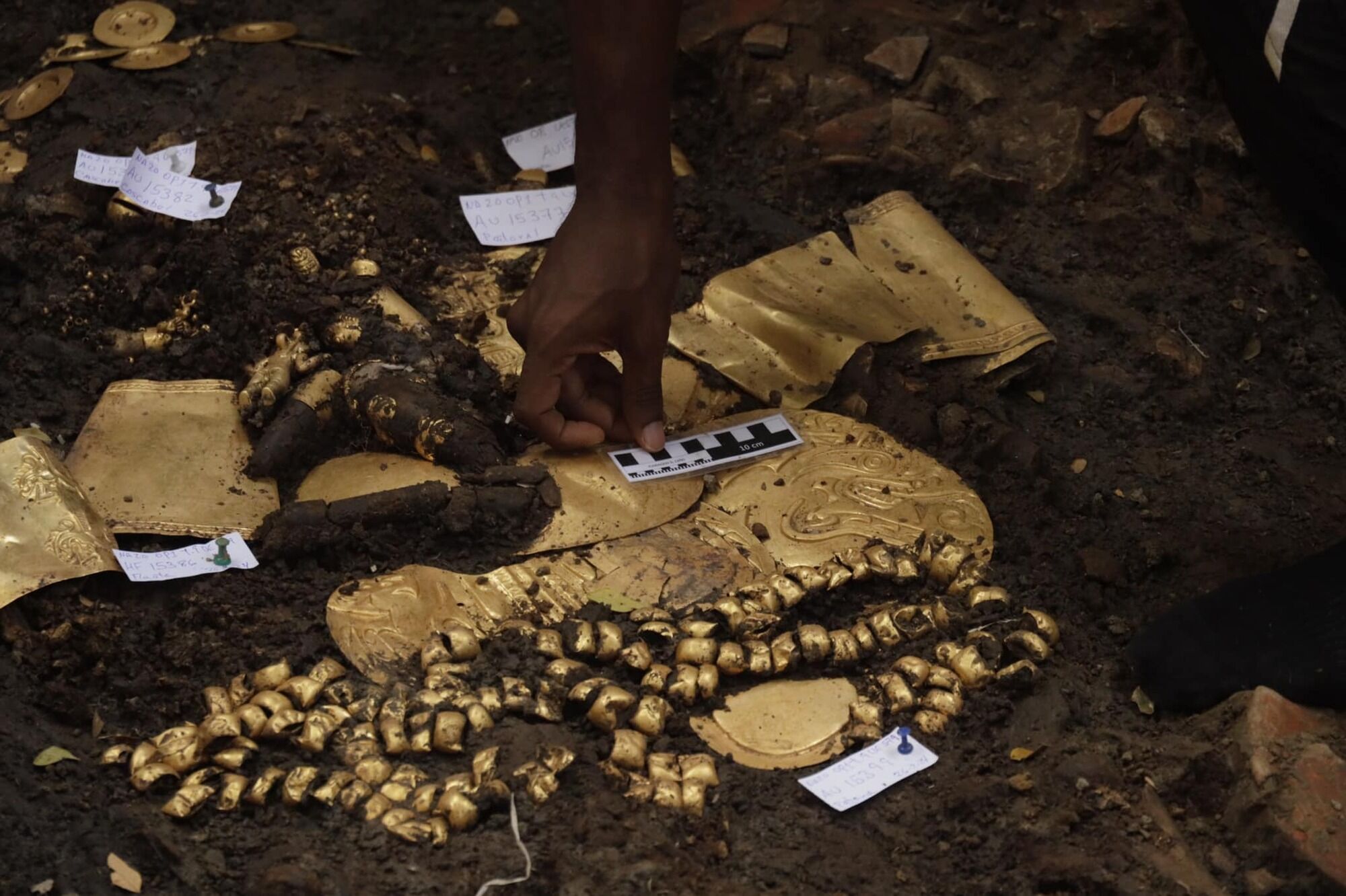
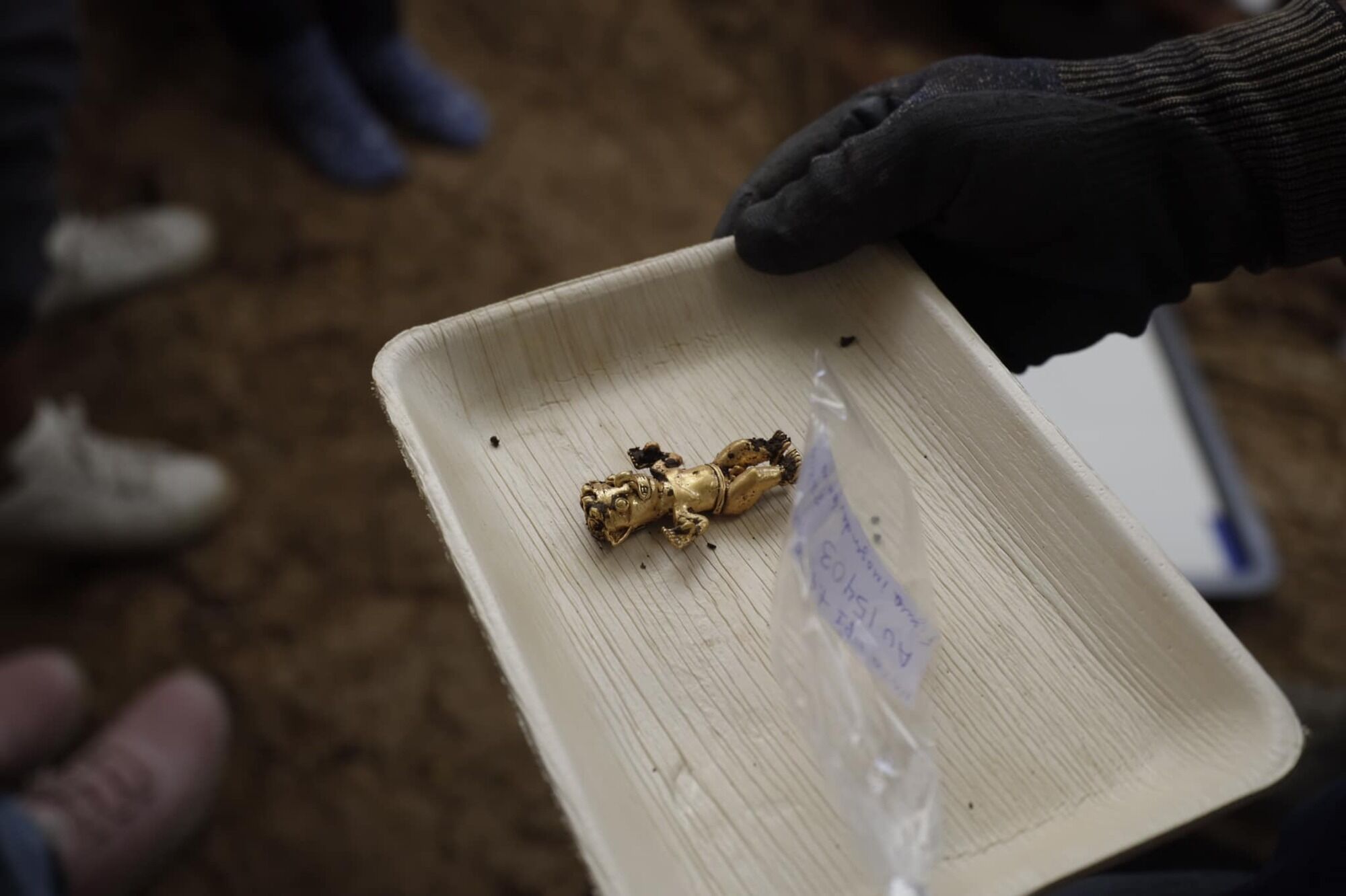
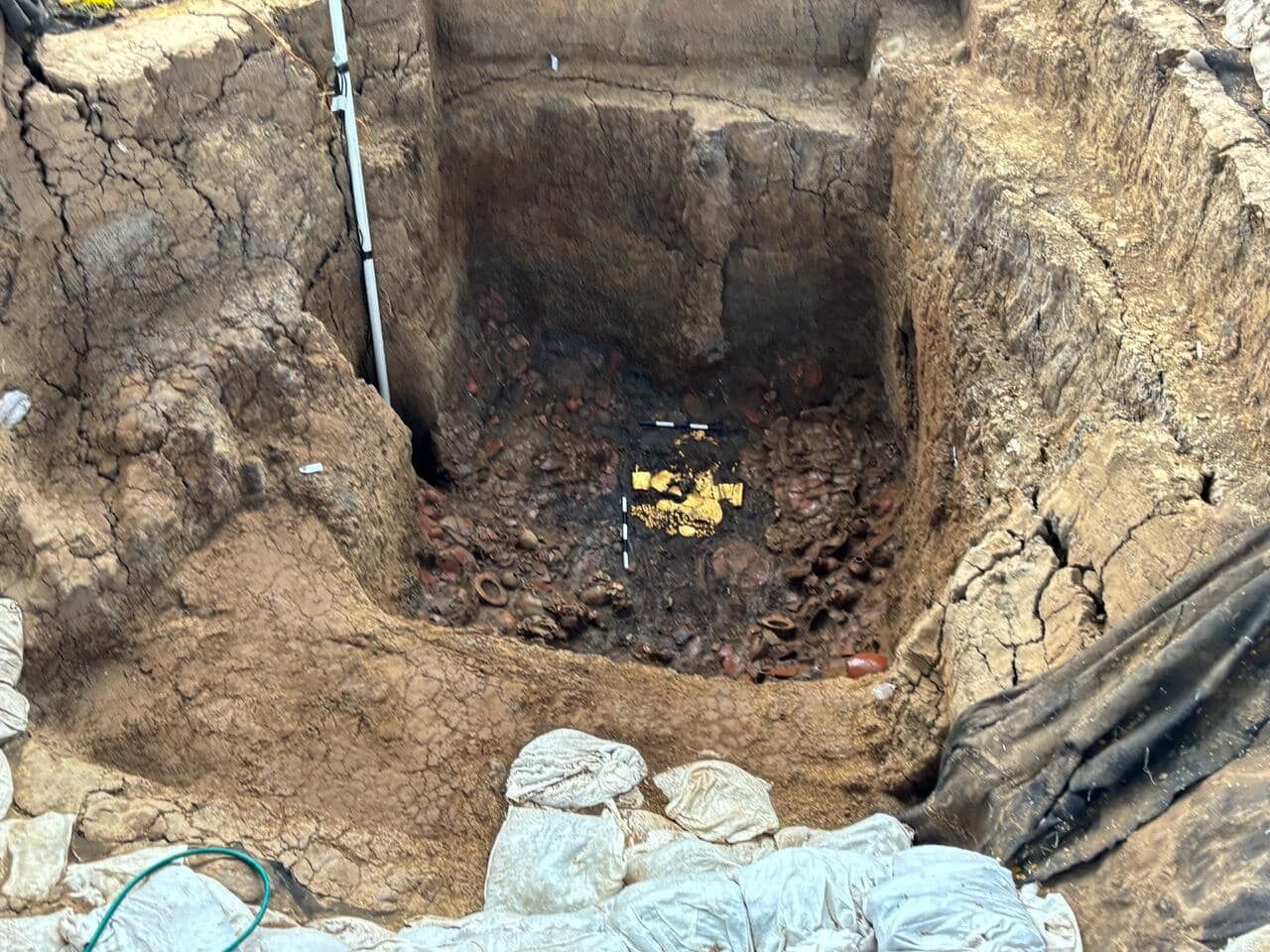
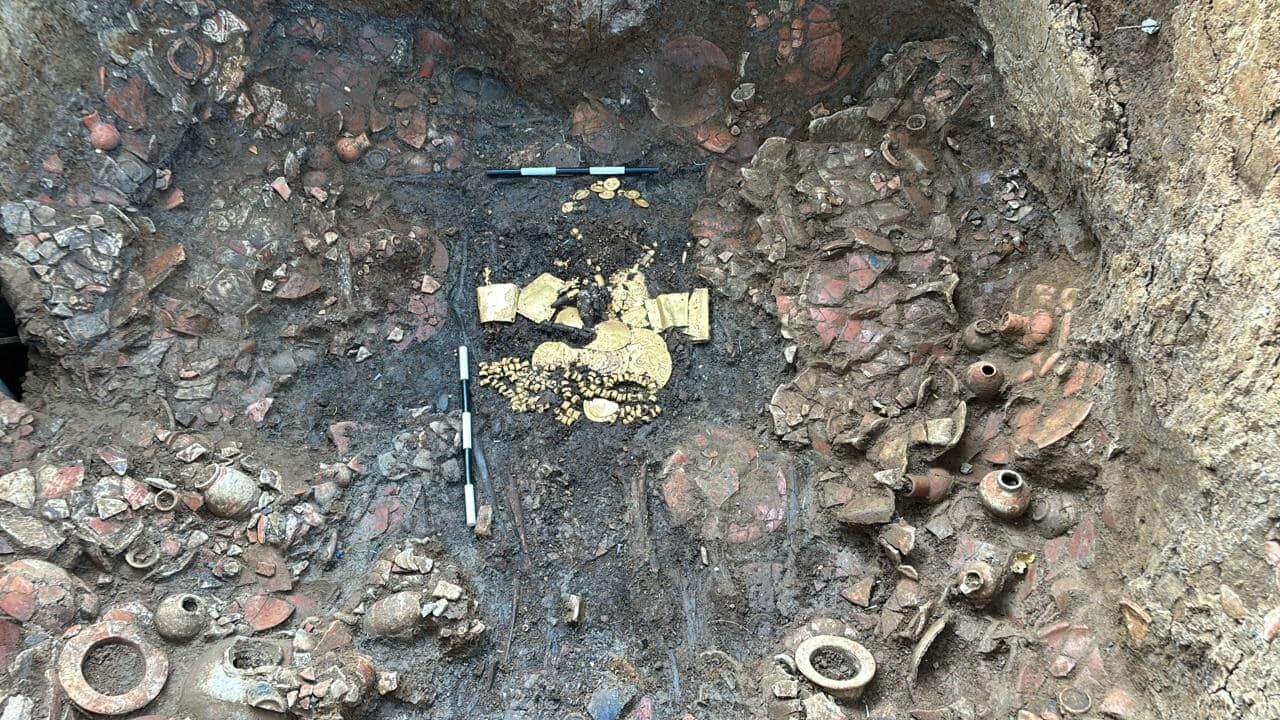
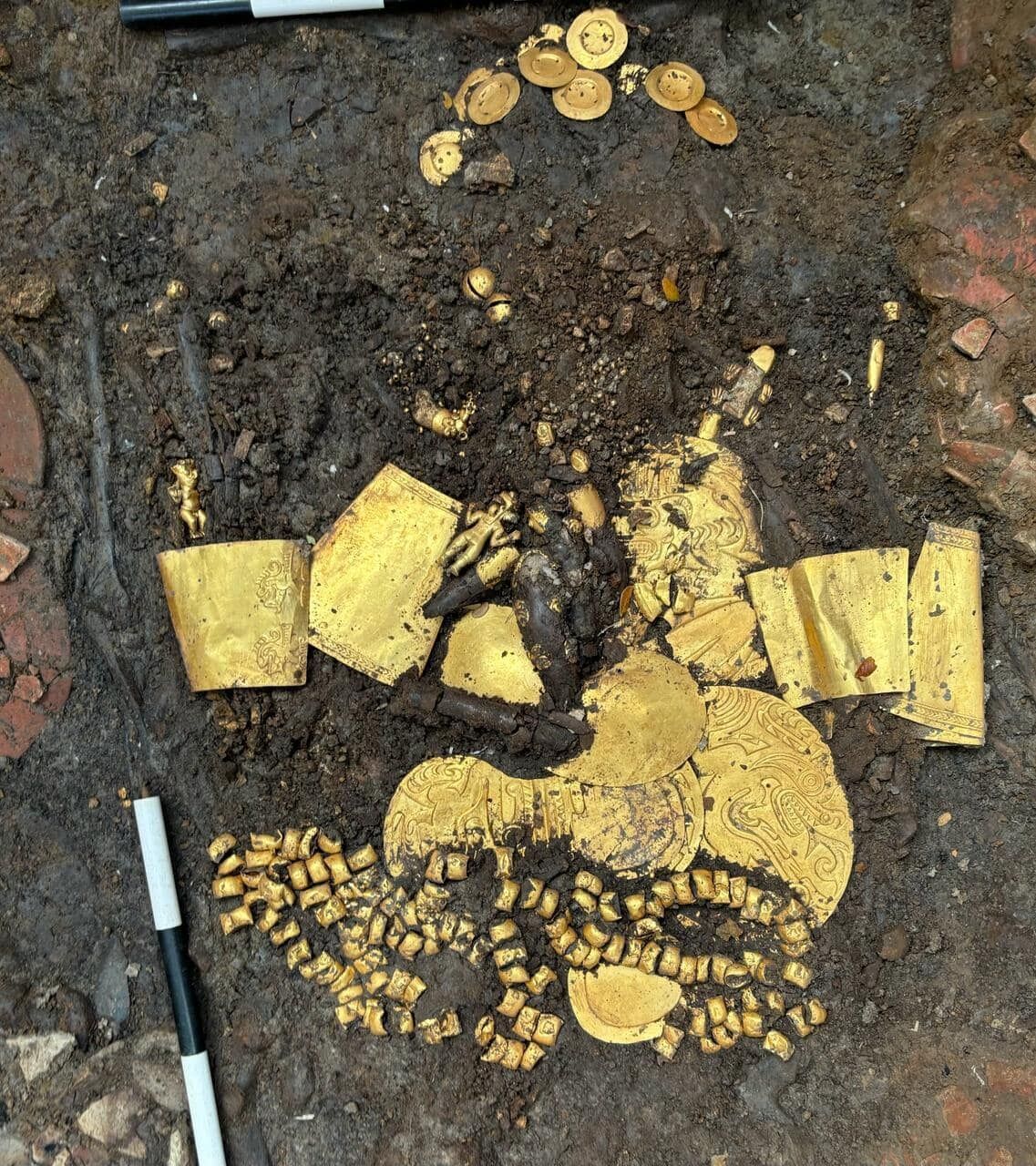
An adult male of high status was buried face down, which was a common burial practice in the period. Excavations are ongoing, so archaeologists are not sure if there are other burials in the tomb. However, tombs from the period often include the burial of a woman and other people under a man "to serve as companions."
The location of El Caño was first discovered in 1925, but it was not until 2008 that more formal excavations began that revealed the large necropolis. It is believed that El Caño was used by a pre-Hispanic society based on the chieftaincy from 700 to 1000 AD.
As a reminder, an extraordinary rare ring from the 17th century was found in England.
If you want to get the latest news about the war and events in Ukraine, subscribe to our Telegram channel!
